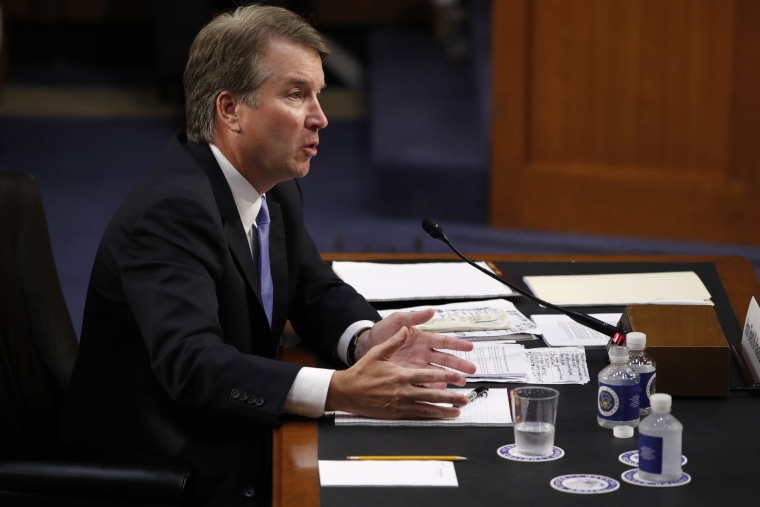Nearly a month ago, before the public had learned the name Christine Blasey Ford, Brett Kavanaugh was already facing questions about sworn testimony he'd given that appeared to be false. Sen. Susan Collins (R-Maine) said in early September, “If in fact (Kavanaugh) was not truthful, then obviously that would be a major problem for me."
When the controversy over alleged sexual misconduct arose, the Maine Republican added, “Obviously, if Judge Kavanaugh lied about what happened, that would be disqualifying."
Over the weekend, on CBS's "60 Minutes," Sen. Jeff Flake (R-Ariz.) was asked if the Supreme Court nominee's nomination would be over if Kavanaugh "is shown to have lied" to the Senate Judiciary Committee. "Oh, yes," the retiring senator replied.
The trouble, of course, is that the list of false assertions made by the Republican judge is already quite lengthy. Making matters worse, it's not done. NBC News reported overnight:
In the days leading up to a public allegation that Supreme Court nominee Brett Kavanaugh exposed himself to a college classmate, the judge and his team were communicating behind the scenes with friends to refute the claim, according to text messages obtained by NBC News.Kerry Berchem, who was at Yale with both Kavanaugh and his accuser, Deborah Ramirez, has tried to get those messages to the FBI for its newly reopened investigation into the matter but says she has yet to be contacted by the bureau.The texts between Berchem and Karen Yarasavage, both friends of Kavanaugh, suggest that the nominee was personally talking with former classmates about Ramirez’s story in advance of the New Yorker article that made her allegation public. In one message, Yarasavage said Kavanaugh asked her to go on the record in his defense. Two other messages show communication between Kavanaugh's team and former classmates in advance of the story.
During his sworn testimony, Kavanaugh was asked by Sen. Orrin Hatch (R-Utah) when he first learned of Ramirez’s allegation. The judge replied that he heard about the claim in the Sept. 23 article in The New Yorker.
That answer, at a minimum, appears to have been misleading, since the texts obtained by NBC News pre-date the publication of the article.
His answer to a similar question from Judiciary Committee staff was even more categorical. It also appears to have been false.
All of which brings us to a familiar point: many of Kavanaugh's supporters have occasionally argued that the antics of a drunk student shouldn't disqualify him from opportunities decades after the fact. It's a point worthy of debate.
But that's only part of Kavanaugh's larger problem. I try to steer clear of the "it's not the crime, it's the cover-up" cliché, but in this case, it resonates for a reason: the more we're confronted to instances in which the Supreme Court nominee was less than truthful while under oath, the harder it is to make the case that he deserves to be confirmed.
